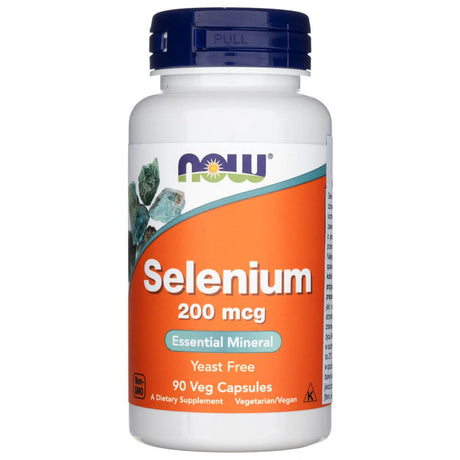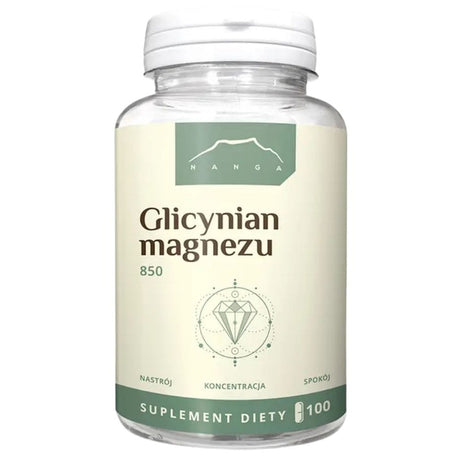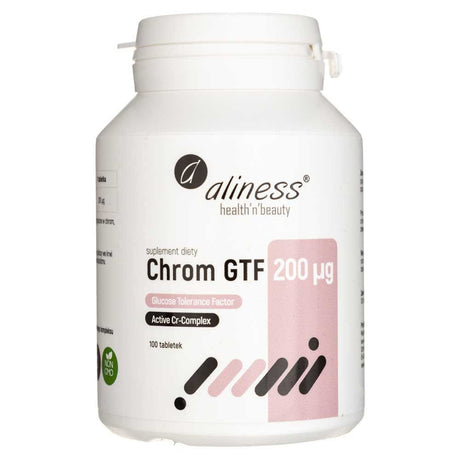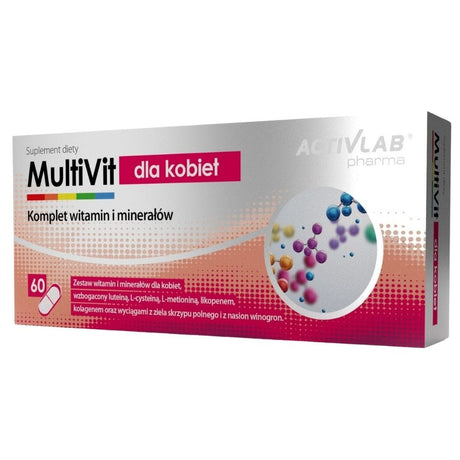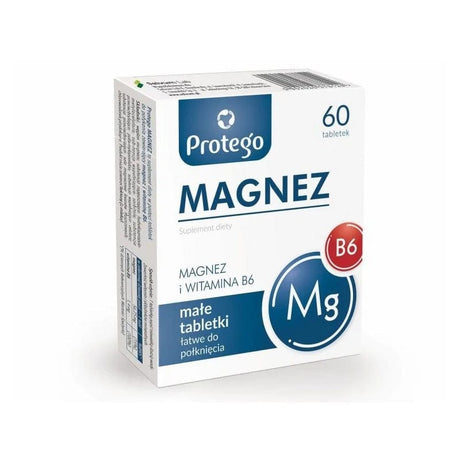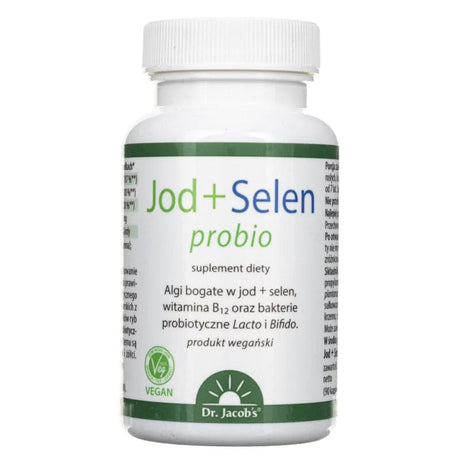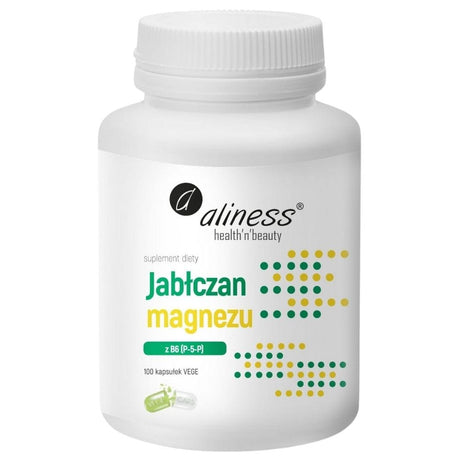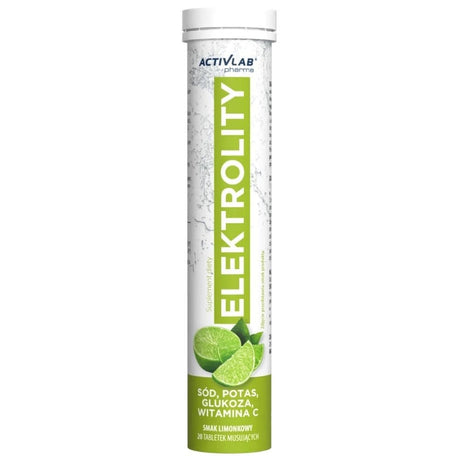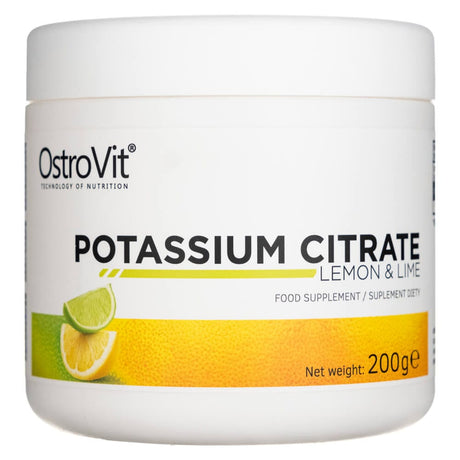IODICA WORLD
Iodica Concentrado de iodo líquido - 240 ml
Preço normal €24.09Preço unitário€100.38 / lIndisponívelNow Foods
Now Foods Selénio 200 mcg - 90 Cápsulas Veg
Preço normal €7.39Preço unitário€0.08 / itemIndisponívelNanga
Nanga Magnésio Glicinato 850 mg - 100 Cápsulas
Preço normal €9.29Preço unitário€0.09 / itemIndisponívelChildLife
ChildLife Líquido Calcium with Magnesium, Sabor a Laranja Natural - 473 ml
Preço normal €24.99Preço unitário€52.83 / lIndisponívelAliness
Aliness Crómio GTF 200 mcg - 100 Comprimidos
Preço normal €8.59Preço unitário€0.09 / itemIndisponívelSolgar
Solgar Selénio Livre de Levedura 100 mcg - 100 Comprimidos
Preço normal €8.99Preço unitário€0.09 / itemIndisponívelAura Herbals
Aura Herbals Silidrop+ - silício orgânico + Boro líquido - 500 ml
Preço normal €24.59Preço unitário€49.18 / lIndisponívelActivlab
Activlab Pharma MultiVit para Mulheres - 60 Cápsulas
Preço normal €4.09Preço unitário€0.07 / itemIndisponívelMedverita
Medverita Citrato de cálcio 500 mg - 120 cápsulas
Preço normal €5.59Preço unitário€0.05 / itemIndisponívelSalvum
Protego Magnésio, Vitamina B6 - 60 Comprimidos
Preço normal €1.69Preço unitário€0.03 / itemIndisponívelVitaler's
Vitaler's Citrato de Potássio 380 mg - 60 Cápsulas
Preço normal €5.29Preço unitário€0.09 / itemIndisponívelDr. Jacob's
Dr. Jacob's Iodo + Selénio probio - 90 Cápsulas
Preço normal €18.99Preço unitário€0.21 / itemIndisponívelDoctor's Best
Doctor's Best MSM com OptiMSM 1500 mg - 120 Comprimidos
Preço normal €14.69Preço unitário€0.12 / itemIndisponívelAliness
Aliness Malato de magnésio 100 mg com vitamina B6 (P-5-P) - 100 cápsulas
Preço normal €11.39Preço unitário€0.11 / itemIndisponívelActivlab
Activlab Pharma Electrólitos, Lime - 20 comprimidos efervescentes
Preço normal €1.29Preço unitário€0.06 / itemIndisponívelThorne Research
Thorne Research Basic Nutrients 2/Day - 60 Cápsulas
Preço normal €48.59Preço unitário€0.81 / itemIndisponívelOstrovit
Ostrovit Citrato de potássio, Lima-limão - 200 g
Preço normal €6.89Preço unitário€3.45 / 100gIndisponívelSwanson
Swanson Citrato de Cálcio - 60 Cápsulas
Preço normal €5.79Preço unitário€0.10 / itemIndisponívelSolgar
Solgar Condroitina Glucosamina MSM de Tripla Resistência - 60 comprimidos
Preço normal €40.29Preço unitário€0.67 / itemIndisponívelALG Pharma
ALG Pharma Asparaginian - 60 Comprimidos
Preço normal €1.49Preço unitário€0.02 / itemIndisponívelWish Pharmaceutical
Wish Selénio 200 mcg + Zinco 15 mg + Prebiótico - 120 Cápsulas
Preço normal €7.59Preço unitário€0.06 / itemIndisponívelProgress Labs
Progress Labs Magnésio + Zinco + Vitamina B6 - 120 Comprimidos
Preço normal €6.59Preço unitário€0.05 / itemIndisponívelAliness
Aliness Cálcio de concha de ostra com vitamina K2 MK-7 e D3 - 100 Comprimidos
Preço normal €11.59Preço unitário€0.12 / itemIndisponível
Compreender a importância dos minerais para a sua saúde
Os minerais são componentes cruciais que desempenham um papel vital na manutenção de uma função corporal óptima. Estes elementos essenciais contribuem para a construção de ossos fortes, mantendo o equilíbrio ácido-base e formando glóbulos vermelhos. Embora uma dieta equilibrada possa fornecer muitos dos minerais necessários, a toma de suplementos pode ser benéfica quando a ingestão alimentar é insuficiente. Vamos mergulhar no mundo dos minerais, seus tipos, e seu significado para um corpo saudável.
O papel essencial dos minerais na função do corpo
Para uma saúde a longo prazo, todos os minerais devem estar em equilíbrio dentro do corpo. As deficiências minerais podem levar a problemas de saúde graves, como anemia, problemas de tiroide, e perda de esmalte dos dentes. Estes elementos vitais regulam o batimento cardíaco, fortalecem os ossos e os dentes e ajudam a manter níveis saudáveis de tensão arterial. Garantir a ingestão adequada de minerais é fundamental para apoiar o bem-estar geral e prevenir vários problemas de saúde.
Compreender os diferentes tipos de minerais
Os minerais são classificados em dois grupos principais: micronutrientes e macronutrientes. Esta classificação é baseada nas necessidades diárias de cada tipo de mineral.
Micronutrientes: Pequenas Quantidades, Grande Impacto
Os micronutrientes são minerais necessários em pequenas quantidades, normalmente menos de 100 mg por dia. Apesar da sua baixa quantidade, estes minerais são cruciais para o bom funcionamento do corpo. Alguns micronutrientes essenciais incluem:
- Zinco : Vital para a função imunitária, cicatrização de feridas, e saúde da pele
- Cobre: Importante para a saúde do coração e transporte de oxigénio
- Ferro: Essencial para a formação de glóbulos vermelhos e circulação de oxigénio
Macronutrientes: A base da saúde mineral
Os macronutrientes são necessários em quantidades maiores, que excedem 100 mg por dia. Estes minerais formam a base de muitos processos corporais e são parte integrante da estrutura celular. Os principais macronutrientes incluem:
- Cálcio : Crucial para a saúde dos ossos e a função muscular
- Magnésio: Importante para a produção de energia e para a função nervosa
- Potássio: Essencial para a saúde do coração e equilíbrio de fluidos
Minerais essenciais para uma saúde óptima
Embora todos os minerais sejam importantes, alguns podem ser mais difíceis de obter apenas através da dieta. Aqui estão alguns minerais essenciais que merecem atenção especial:
Crómio: O equilibrador do açúcar no sangue
O crómio é um mineral vestigial que desempenha um papel crucial no metabolismo da glicose. Ajuda a controlar os níveis de açúcar no sangue, reduzindo potencialmente o risco de diabetes. Adicionalmente, o crómio pode ajudar a reduzir o mau colesterol enquanto aumenta o bom colesterol, oferecendo proteção contra a aterosclerose.
Zinco: O Apoiante Imunitário e da Pele
O zinco é essencial para manter a pele saudável, o cabelo e as unhas. Também desempenha um papel vital na cicatrização de feridas e na função imunitária. A deficiência de zinco pode levar a tempos de cicatrização prolongados e a problemas de pele. Este mineral também contribui para a força óssea, tornando-o benéfico para condições como o reumatismo.
Cobre: O ajudante do sistema circulatório
O cobre é crucial para manter um sistema circulatório e uma função cardíaca saudáveis. Ajuda no transporte de oxigénio para as células e influencia a atividade dos neurotransmissores, melhorando potencialmente a função cerebral. Garantir a ingestão adequada de cobre pode apoiar a saúde cardiovascular e neurológica geral.
Conclusão: Abraçando a Saúde Mineral
Compreender o papel dos minerais no seu corpo é crucial para manter uma saúde óptima. Embora uma dieta equilibrada seja a melhor fonte de minerais, os suplementos, podem ajudar a colmatar as deficiências e apoiar o bem-estar geral. Na Medpak, oferecemos uma vasta gama de suplementos minerais de alta qualidade para o ajudar a satisfazer as suas necessidades nutricionais. Explore a nossa coleção e dê um passo em direção a uma melhor saúde Toda y.

